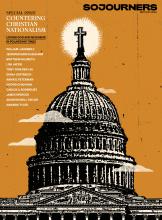IN HIS INFLUENTIAL book Orientalism, Palestinian literary critic Edward W. Said articulated the symbiotic relationship between knowledge and power. Said observed that people in power often get to produce knowledge, and they produce it in ways that justify and enhance their privilege. Such a symbiotic relationship between knowledge and power plays out in books, movies, art, and other cultural venues. In the context of European colonialism, Western artists and intellectuals did the empire’s bidding by caricaturing cultures in the global South as barbaric and inferior to European culture. Empires employ such caricatures to justify conquest and advance political and economic interests. Such distortions promote narratives that deflect attention from the mechanisms of conquest and, in many cases, pit colonized communities against each other.
It matters who gets to tell whose story. How they are told and to what end matters as well. Empires continue to manufacture modes of knowledge — in the form of caricatures, false narratives, and single stories devoid of nuance — and weaponize them against the oppressed. This phenomenon of promoting single stories occurs in biblical interpretation too and in the scriptures themselves. As Christians, charged with being “good news” among the oppressed, we can unveil the mechanisms by which dominant groups produce knowledge to advance their own interests. How are we perpetuating single stories or false narratives to the detriment of ourselves and others? It’s a task that requires intellectual acumen as well as intellectual humility.
Read the Full Article

